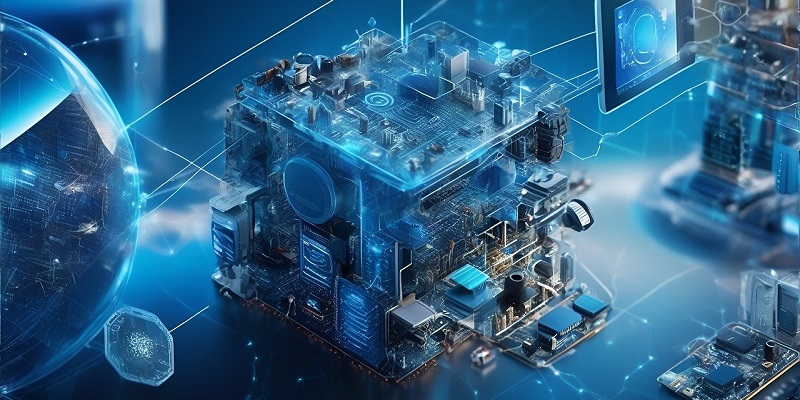Headline: The Powerful Alliance of MachinThe integration of machine learning (ML) algorithms and robotics has given rise to a new era of technological advancements. Robots, once limited to performing pre-programmed tasks, have now become more intelligent and adaptable, thanks to the capabilities offered by ML. This article explores the dynamic relationship between robots and ML and the profound impact it has on various industries and everyday life.
The Role of Machine Learning in Robot Performance
Robots are designed to execute specific tasks, and their performance greatly depends on the algorithms used to program them. Machine learning algorithms enable robots to continually learn and improve their performance over time. By analyzing data patterns and making adjustments, robots can adapt to changing circumstances and overcome challenges, ultimately enhancing their overall efficiency and effectiveness.
Machine Learning Enabling Perception and Decision-Making in Complex Situations
Perceiving and making decisions in complex situations is a crucial capability for robots. Machine Learning (ML) enables robots to process vast amounts of sensory data, analyze it, and make intelligent decisions accordingly. By leveraging ML algorithms, robots can navigate dynamic and unpredictable environments, identify obstacles, and choose the most optimal course of action, even in highly complex situations.
Machine Learning in Self-Driving Cars
Self-driving cars have revolutionized transportation, and machine learning algorithms play a central role in their functioning. These algorithms enable cars to efficiently navigate roads, interpret traffic signs, and avoid collisions in real time. By continuously learning from new data and experiences, self-driving cars become increasingly adept at making quick decisions, ensuring the safety of passengers and other road users.
Machine Learning in Industrial Automation and Manufacturing
The industrial sector greatly benefits from the application of ML algorithms in automation and manufacturing processes. Through ML, robots can optimize supply chains, predict demand fluctuations, and make autonomous decisions to ensure efficient production. ML algorithms analyze vast amounts of data, helping industries identify patterns, optimize workflows, and reduce costs while maintaining high-quality standards.
Predictive maintenance and machine learning
Predictive maintenance is a prominent use case where ML algorithms greatly improve efficiency and reduce costs. By analyzing historical and real-time data, machine learning algorithms can accurately predict equipment failures, allowing for proactive maintenance scheduling. This approach minimizes unplanned downtime, optimizes maintenance schedules, and reduces overall maintenance costs.
Machine Learning in Smart Warehouses
Smart warehouses benefit significantly from machine learning (ML) algorithms, providing real-time visibility, process automation, and identifying gaps or opportunities in warehouse management. ML enables robots to optimize inventory management, increase efficiency in order picking and delivery operations, and improve overall warehouse processes. By learning from data and constantly improving, ML-powered robots streamline operations, enhance accuracy, and maximize productivity.
Robotics and AI Integration in Healthcare
The healthcare industry has experienced significant transformations due to the integration of robotics and AI. Robots, powered by AI and ML, can perform maintenance tasks, transport items, and contribute to various healthcare procedures. ML algorithms enable robots to assist in surgical procedures, analyze medical images, provide diagnoses based on symptoms, and even participate in patient care, revolutionizing the way healthcare services are delivered.
Precision Medicine and the Use of Machine Learning and Robotics
Precision medicine thrives on the integration of ML and robotics to provide tailored medical solutions for specific patient groups. By analyzing vast amounts of patient data, ML algorithms help identify correlations, predict treatment outcomes, and personalize treatment plans. Robotics, in combination with ML, assists in precise surgeries, drug delivery, and continuous monitoring, enhancing patient care and improving treatment efficacy.
The Future of Machine Learning and Robotics
The field of ML and robotics is constantly evolving, offering innovative solutions for long-standing and emerging challenges. As ML algorithms become more sophisticated, robots will continue to learn and adapt, becoming capable of handling increasingly complex tasks. The integration of ML and robotics will pave the way for advancements in fields such as transportation, manufacturing, healthcare, and beyond, fundamentally transforming industries and changing lives.
The alliance between machine learning (ML) and robotics has unleashed unprecedented potential and sparked a technological revolution across various sectors. From enhancing robot performance to enabling autonomous decision-making, the integration of these technologies has opened new horizons for industries worldwide. As ML and robotics continue to evolve, their future promises extraordinary advancements, leading to innovative solutions for both longstanding and emerging challenges, and ultimately transforming the way we live and work.

